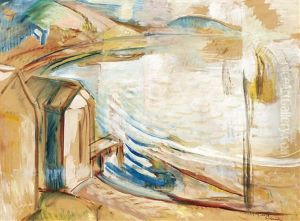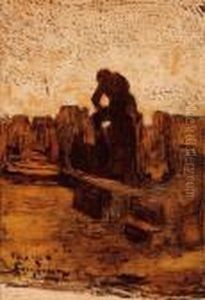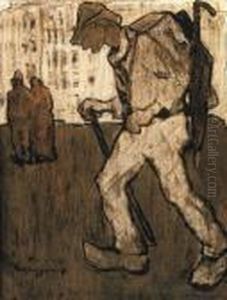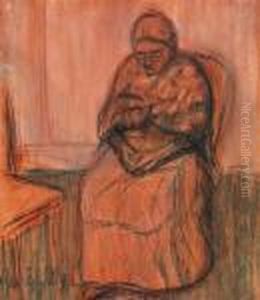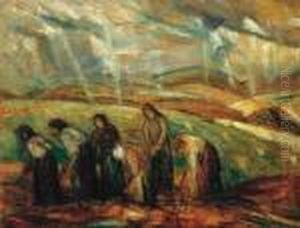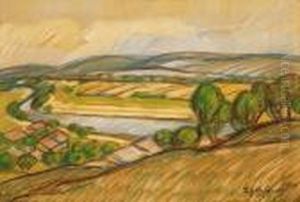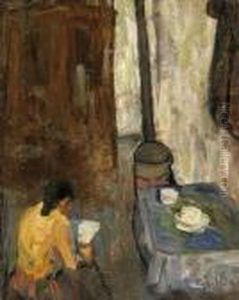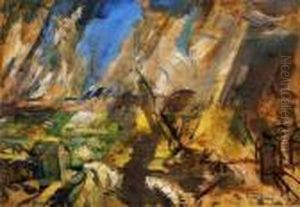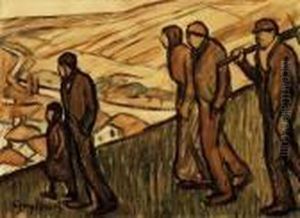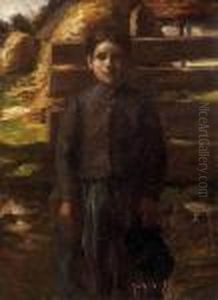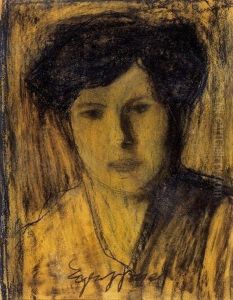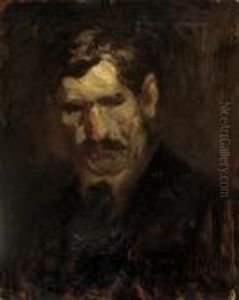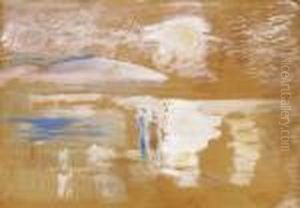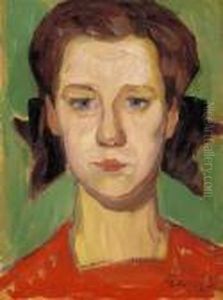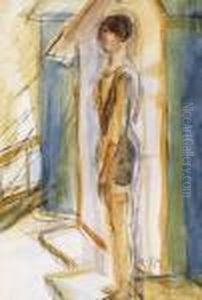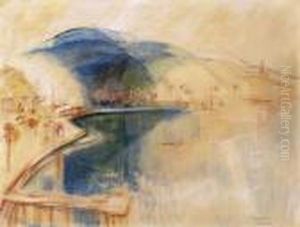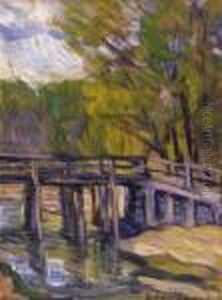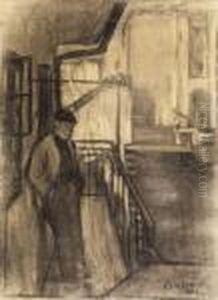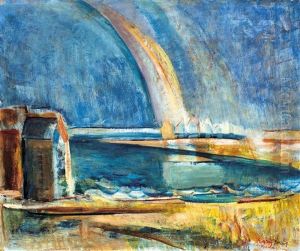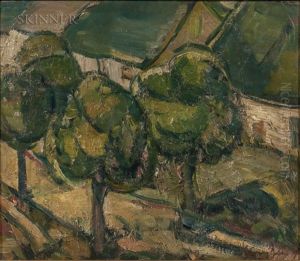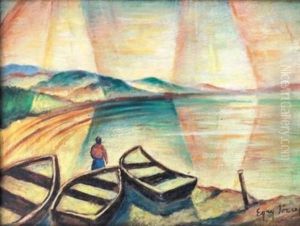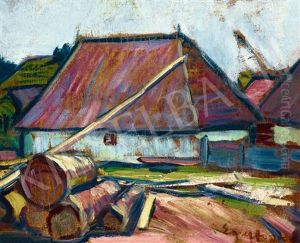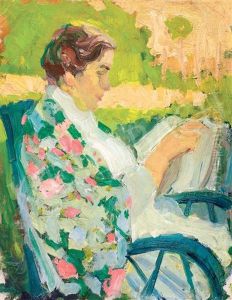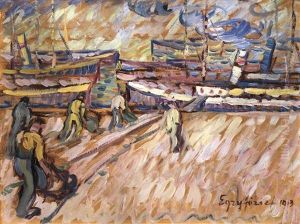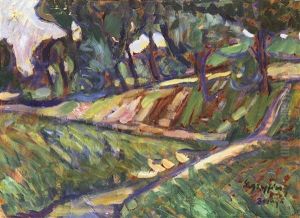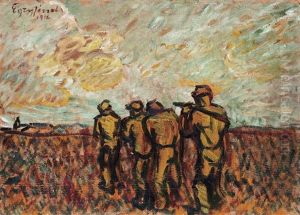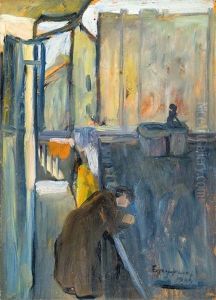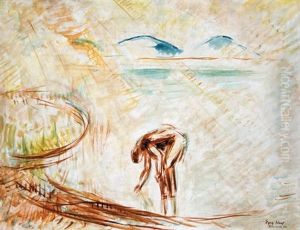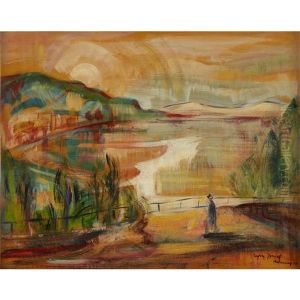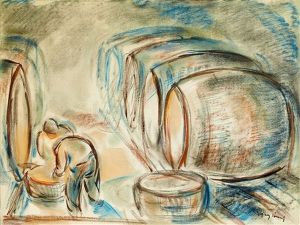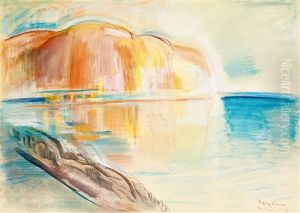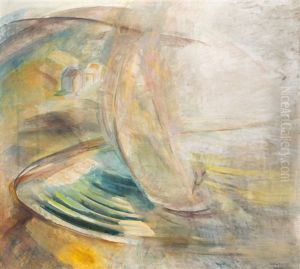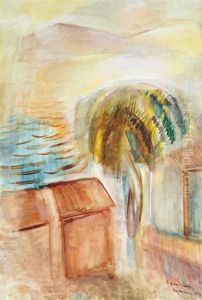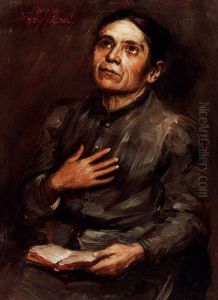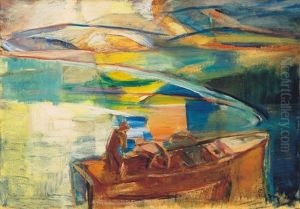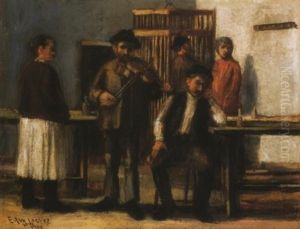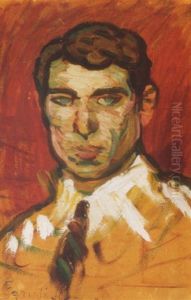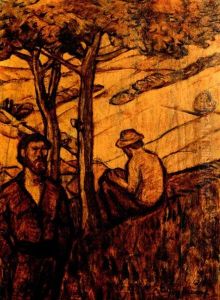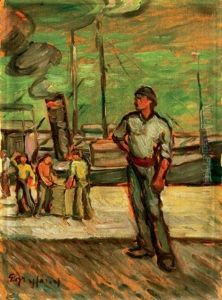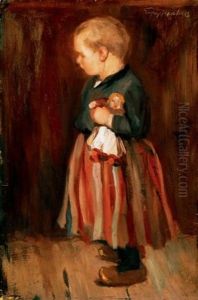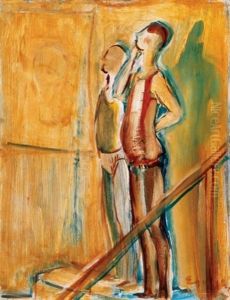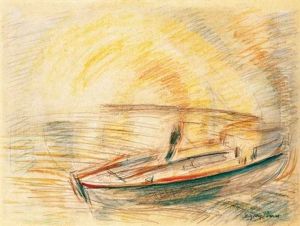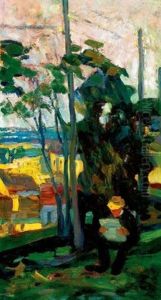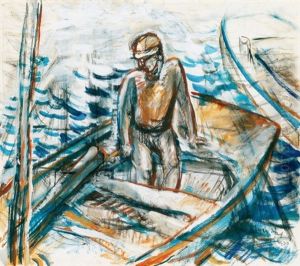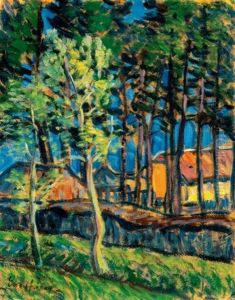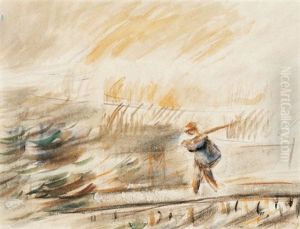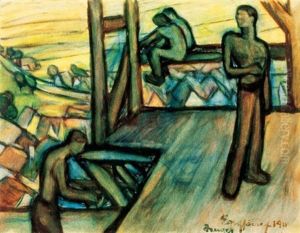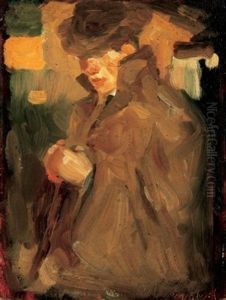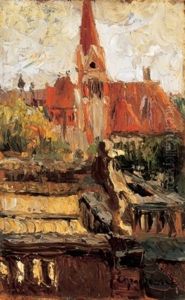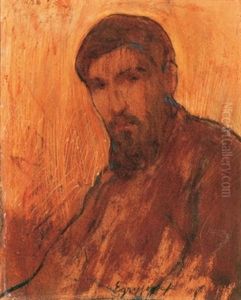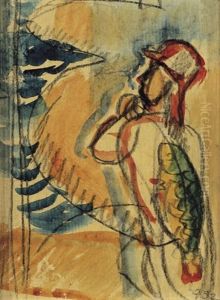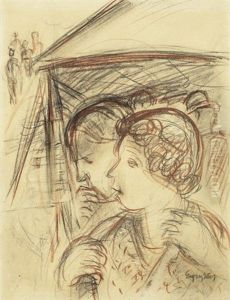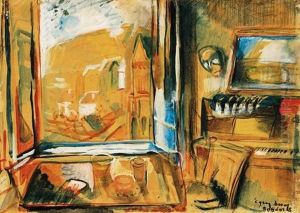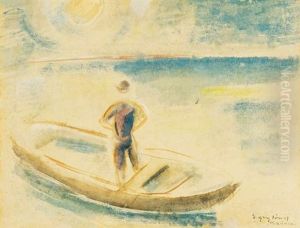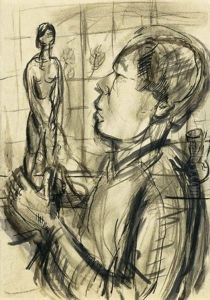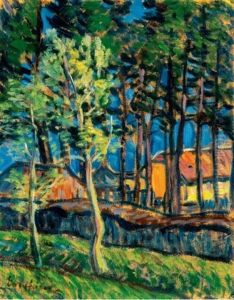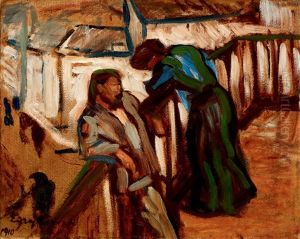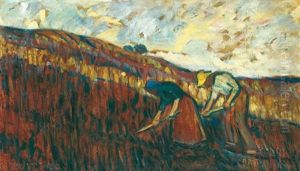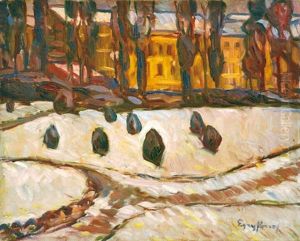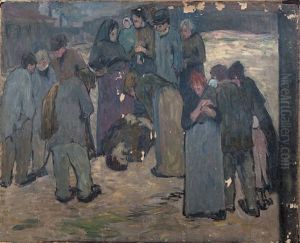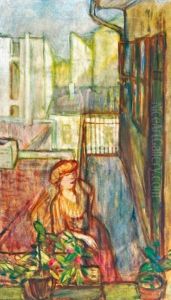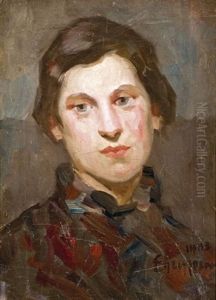Jozsef Egry Paintings
József Egry was a prominent Hungarian painter known for his distinctive portrayal of the Balaton, Hungary’s largest lake, and its surrounding landscape. Born on March 21, 1883, in Zalaegerszeg, Hungary, Egry began his artistic journey by studying at the School of Decorative Arts in Budapest, followed by further education at the Munich Academy. His early work was influenced by Impressionism and Post-Impressionism, which is evident in his use of light and color.
During the initial phase of his career, Egry worked as an illustrator and graphic artist, which honed his skills in composition and form. However, his true passion lay in painting, and it was not long before he dedicated himself entirely to this medium. After serving in World War I, Egry's experiences profoundly affected his outlook on life and art, leading him to seek solace and inspiration in the tranquility of Lake Balaton.
Egry's attachment to Lake Balaton became the central theme of his life's work. He moved to the town of Badacsony, located on the lake's shores, where he immersed himself in capturing the ever-changing moods and light of the lake. His paintings from this period are characterized by a unique blend of realism and abstraction, with a strong emphasis on the rhythmic patterns of water and sky. He often depicted the lake at different times of the day and in varying weather conditions, showcasing his mastery of the interplay between light and color.
The painter's reputation grew, and he became synonymous with the Balaton landscape. His work received recognition not only in Hungary but also internationally, and he participated in several exhibitions abroad. Throughout his career, Egry remained committed to his unique vision, never swaying in the face of changing artistic trends. His dedication earned him numerous awards and honors, including the Kossuth Prize, one of Hungary's most prestigious cultural awards.
József Egry passed away on June 19, 1951, in Badacsony. His legacy is preserved by the József Egry Museum in Badacsony, which houses many of his works and serves as a testament to his contribution to Hungarian art. Egry's paintings continue to be celebrated for their profound connection to the natural beauty of Hungary and for their emotive power, capturing the essence of Lake Balaton in a way that no other artist has.
